Shrovetide - Wednesday "Lakomka"
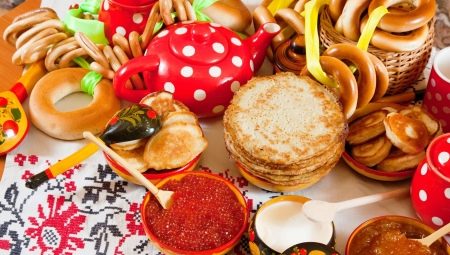
Shrovetide has long become not only an Orthodox holiday, but also an event that is widely celebrated on the domestic territory. Few people know that in addition to the traditional burning of a scarecrow, there are many more rituals and traditions of this festive week. Some of the most interesting activities begin on the third day of the Maslenitsa celebration. About how this day is called, why it got its name, read this article.
Meaning
"Gourmet" is the name of the third day of Pancake Week, which falls on Wednesday and the last day of the Narrow Pancake Week (the first half of the week of celebration). Other names for this day are "Rampant", "Modest Sereda", "Poles" and "Fracture". The name of the day speaks for itself - on this day it is customary to cook a lot and eat plenty. The second half of Shrovetide week is called Wide Shrovetide and lasts from Thursday to Sunday.
The first half of the week was devoted to household chores and celebrations, while the second half was dedicated to celebrations only.

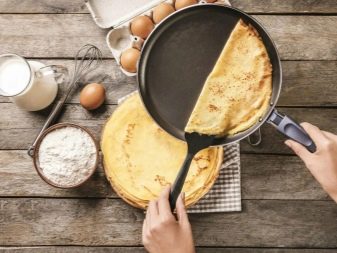
Simply put, on this day, people were finishing things, finishing cleaning their homes, and also doing cooking at the same time. Only in the evening or in the second half of the most delicious day of Maslenitsa did the people entertain themselves with songs and dances and went to the guests. Gourmet meant the end of chores and the start of fun.
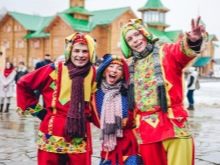
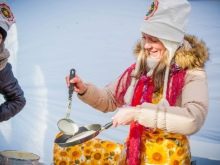
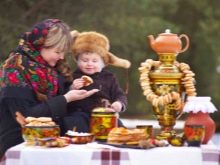
Traditions
The third day of Shrovetide week has always been celebrated sumptuously and with a richly set table. Sbitni (a drink made from honey, water and spices), mead, as well as gingerbread and roasted nuts were often sold on the streets under small awnings. Water was often boiled in huge samovars, and hot tea was poured out to everyone.
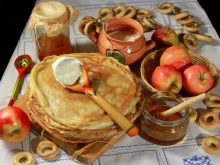
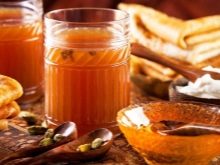
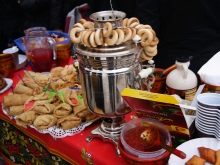
In Russia, according to tradition, on this day, the son-in-law and his friends came to the mother-in-law for a rich feast. The main dish was filled pancakes. The mother-in-law tried to cook pancakes with different fillings to show her culinary skills. There is a belief that if the son-in-law preferred pancakes to sweet mother-in-law, then his disposition is soft and flexible, and if - with salty filling, then his character is complex. It is worth noting that before, as a rule, the mother-in-law rarely had one son-in-law, often there were several of them. Now grooms rarely visit their mother-in-law on this day. The tradition is observed only formally, as a tribute to ancient customs.
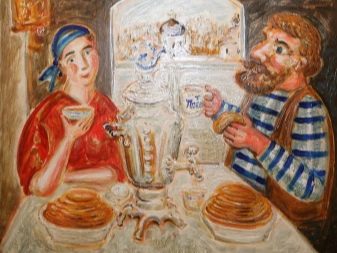
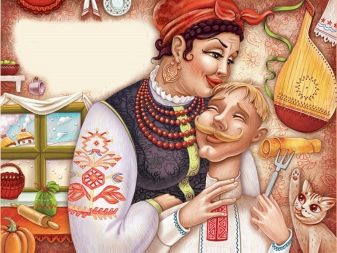
Each housewife had her own recipe for making pancakes. They were prepared not only from traditional wheat flour, but also from buckwheat, oatmeal, potato and corn flour. Various cereals, pumpkin, apples, caviar, mushrooms or other ingredients were often added to them. Pancakes with herring are still a popular option. Eating as many pancakes as possible was considered the main and pleasant tradition of this day. It was believed that if the table was richly laid on this day, this would be the year. The following proverb speaks eloquently about this - "Though you can lay everything off yourself, but spend Shrovetide."
In the hinterlands, a tradition has been preserved when young people who have recently got married drive around the streets dressed up and come to visit those who were at their wedding.
Nowadays, the celebration of "Lakomka" has become easier - now people only bake pancakes and visit close friends or relatives.
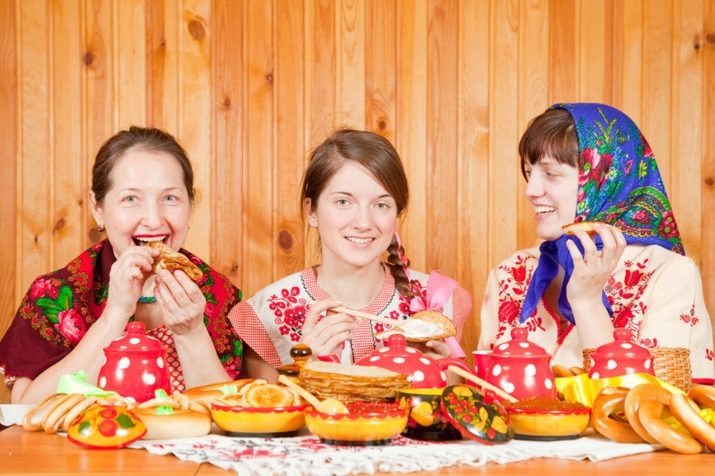
Rituals
There was an unusual rite of that day - the mother-in-law would anoint the son-in-law's head with oil so that he, being "oiled", would treat her daughter well. Often in the mother-in-law's house on the day of "Gourmet", the son-in-law and his friends put on scenes, songs and poems were dedicated to the mother-in-law.
On this day, fairs were opened, carousels worked. The youth rode troika with bells. A separate ritual was driving a round dance.
It was believed that all active actions help to throw out the accumulated energy and negative emotions, which improves relations between people.
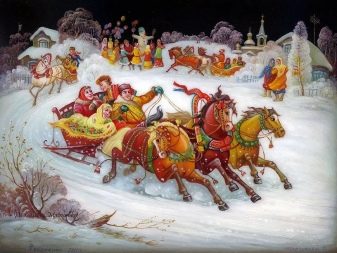
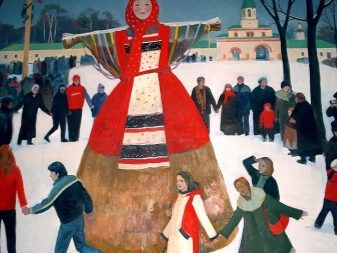
And also there was a kind of ritual when young girls gathered and, dressed up, called the guys with funny songs. Such gatherings were called "girl's conventions". The scenario of the "congresses" was different, but the main ones were actions where the guys were mocked, made fun of, grabbed and demanded a ransom. The guys tried to arrange intrigues as a joke. Song competitions were held.
An interesting ceremony was called "pillars"... During it, the newlyweds stood in two rows along the street and publicly kissed. They usually wore their best outfits. Passers-by also teased them with phrases such as "gunpowder on their lips."
Another important rite was considered apology... It was believed that on this day it is important to do good deeds and get rid of grievances. A kind of emotional "clearing" took place. The main idea not only of "Lakomka", but of the entire Pancake Week was considered serving close people, building relationships and starting a new year with hopes for the best. Pancakes - the main dish of "Lakomka" and other Shrovetide days - were considered a symbol of the sun.
There was a belief that the one who eats pancakes absorbs a particle of solar energy.
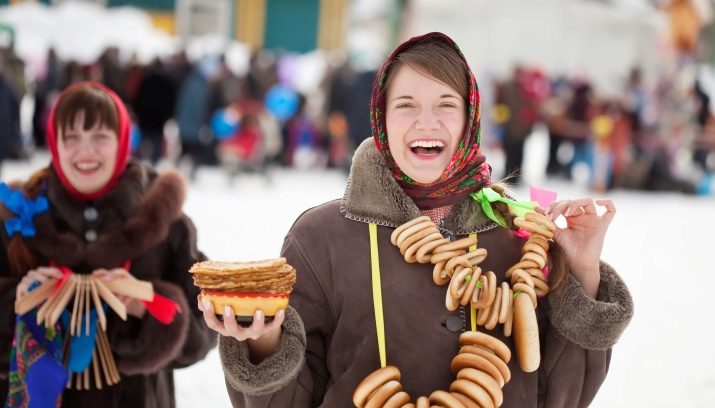
What can and cannot be done?
It is believed that it is not good to be sad or to give in to despondency on this day. You need to spend it in the most elated mood.
On this day, cooking a large number of pancakes was and is encouraged. It was impossible to cook and eat meat dishes. Drinking alcohol on this day was considered a prohibited act. However, this did not apply to beer. Previously, beer was not considered alcoholic and was brewed using a special technology by men in markets or open areas. Competitions were sometimes held between brewers. Now this ban has also come to naught.
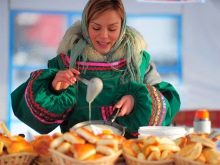
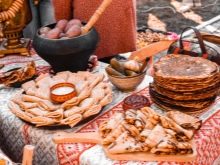
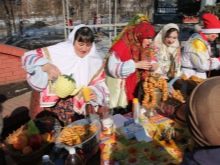
Nowadays, out of the entire Maslenitsa week, only the last day is celebrated - Forgiveness Sunday, which is not entirely correct. Shrovetide is an ancient holiday that originates in distant times.You can celebrate the entire holiday week very modestly and according to your financial condition. All the traditions of "Lakomka" and of the entire Shrovetide week not only cheer up, energize, but also give strength for the new year and the accomplishment of new things.








